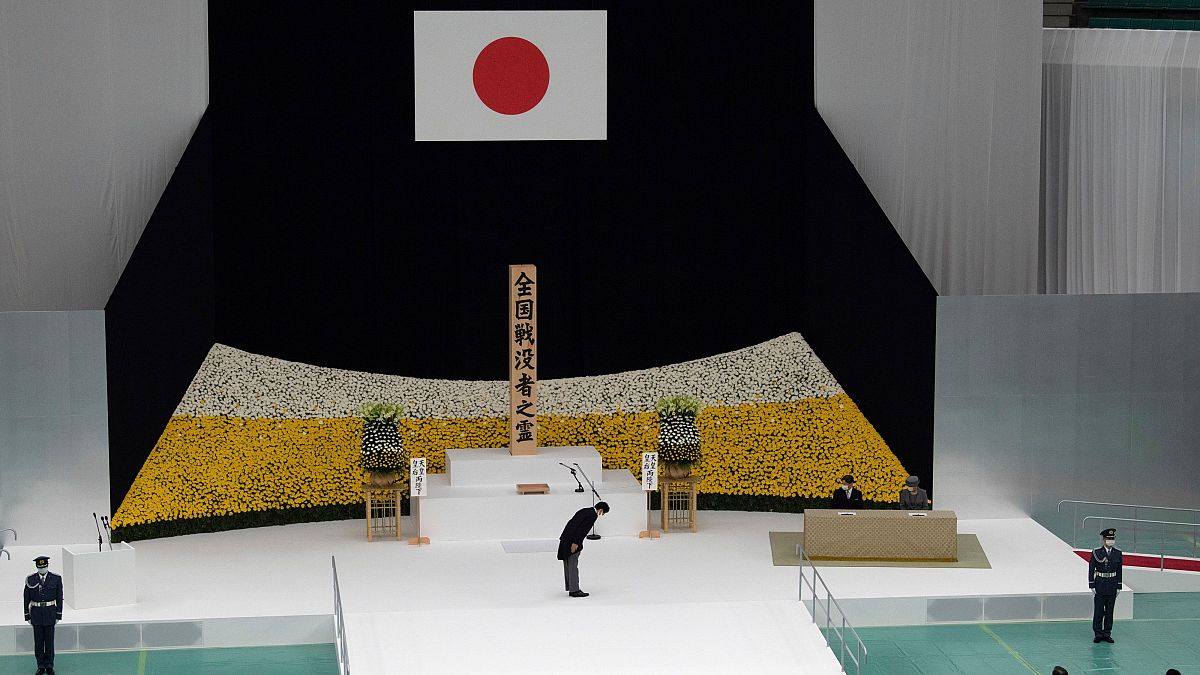Japan's Emperor Naruhito expressed “deep remorse” over his country’s wartime actions, pledging to reflect on the war's events and expressing hope that the tragedy would never be repeated.
Ceremonies have taken place in Japan to mark the 75th anniversary of the country’s surrender at the end of the Second World War.
Emperor Naruhito expressed “deep remorse” over his country’s wartime actions, pledging to reflect on the war's events and expressing hope that the tragedy would never be repeated.
There was no word of apology from Prime Minister Shinzo Abe, who gave thanks for the sacrifices of the Japanese war dead but had nothing to say about the suffering of Japan’s neighbors.
“Reflecting on our past and bearing in mind the feelings of deep remorse, I earnestly hope that the ravages of war will never be repeated,” Naruhito said in a short speech at the event in Tokyo, curtailed due to the coronavirus pandemic.
About 500 participants, reduced from 6,200 last year, mourned the dead with a minute of silence. Masks were required, and there was no singing of the “Kimigayo” national anthem.
Naruhito has promised to follow in the footsteps of his father, who devoted his 30-year career to making amends for a war fought in the name of Hirohito, the current emperor’s grandfather.
Abe on the other hand has abandoned a near-20 year tradition of acknowledging the country’s wartime hostilities during August 15 speeches, a tradition started with the 1995 apology of Socialist leader Tomiichi Murayama.
Abe, in a largely domestic-focused speech, said the peace that Japan enjoys today is built on the sacrifices of those who died in the war. He pledged that Japan will reflect on lessons from history and will not repeat the war devastation.
He listed damage inflicted on Japan and its people, including the US atomic bombings of Hiroshima and Nagasaki, massive firebombings of Tokyo and the fierce battle of Okinawa.
“Remembering those days, I strongly feel we should never wage war,” said Shoji Nagaya, 93, who traveled from Hokkaido in northern Japan to commemorate his brother who died of illness while serving in China. “But politicians today seem to have different views than ours, and I really hope that they will not head in the wrong direction.”
Nobuko Bamba, a retiree whose grandmother, uncle and aunt died in the March 10, 1945, US firebombing of Tokyo, thinks both sides of history should be remembered.
“There are many people who don’t know anything about the war, not only the suffering of the Japanese people, but there are also things that Japanese people did, bad things,” Bamba said. “Unless we teach these things to future generations, I don’t think war would end.”
Japan surrendered on August 15 1945, just over three months after the surrender of its then-ally Nazi Germany in Europe.
